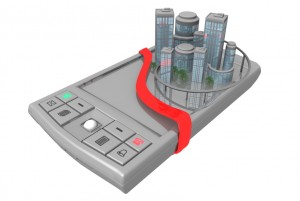
How Can IBM’s Approach To Sensors Change The World?
 Around the world, the increased use of sensors—and the data insights they provide—is leading to better management of resources and increased efficiency. A recent article on Forbes.com highlights how IBM is creating smarter cities with sensor technology. The article also discusses how advanced application of sensors can be used to address any number of everyday urban challenges from finding a parking space to increasing access to critical information in the wake of a natural disaster.
Around the world, the increased use of sensors—and the data insights they provide—is leading to better management of resources and increased efficiency. A recent article on Forbes.com highlights how IBM is creating smarter cities with sensor technology. The article also discusses how advanced application of sensors can be used to address any number of everyday urban challenges from finding a parking space to increasing access to critical information in the wake of a natural disaster.
Unfortunately, the widespread use of sensors can still be cost-prohibitive. Few organizations can afford to spend hundreds or thousands of dollars per sensor and companies need to be working hard on the idea of bringing the cost down to an affordable level. The key is to make it easier and cheaper for everyone to gain access to the sensor space.
Besides cost, there are two other barriers hampering the widespread adoption of sensors. The first is that much of the sensor industry is focused on the sensor base or the sensors themselves rather than combining all the components to present a complete solution. In many cases the end user or system integrator must put together different components, write the software and then embed it with the sensor hardware.
The second area of focus for many vendors is the big push for cloud-based data collection systems. However, many of these are generic APIs that work with any platform that is configured to use them. By themselves they are good ways to visualize your data, but not in the context of any real analysis or domain-specific expertise.
The reality is the end user needs both preconfigured hardware and cloud-based monitoring combined to serve a specific purpose. Users want sensors solutions that are easy to install and setup with clear instructions that explain what they’re capable of doing. They also need sensors that are easy to connect to other software and can integrate seamlessly with sensors from multiple vendors.
To be successful, organizations need to provide cheap, easy, and complete solutions that are broad enough to work with other systems. Sensors and the valuable insights they provide could be the key to smarter, more efficient cities and societies. It’s vital to develop integrated systems that are more affordable and readily available.
Source: Forbes.com
